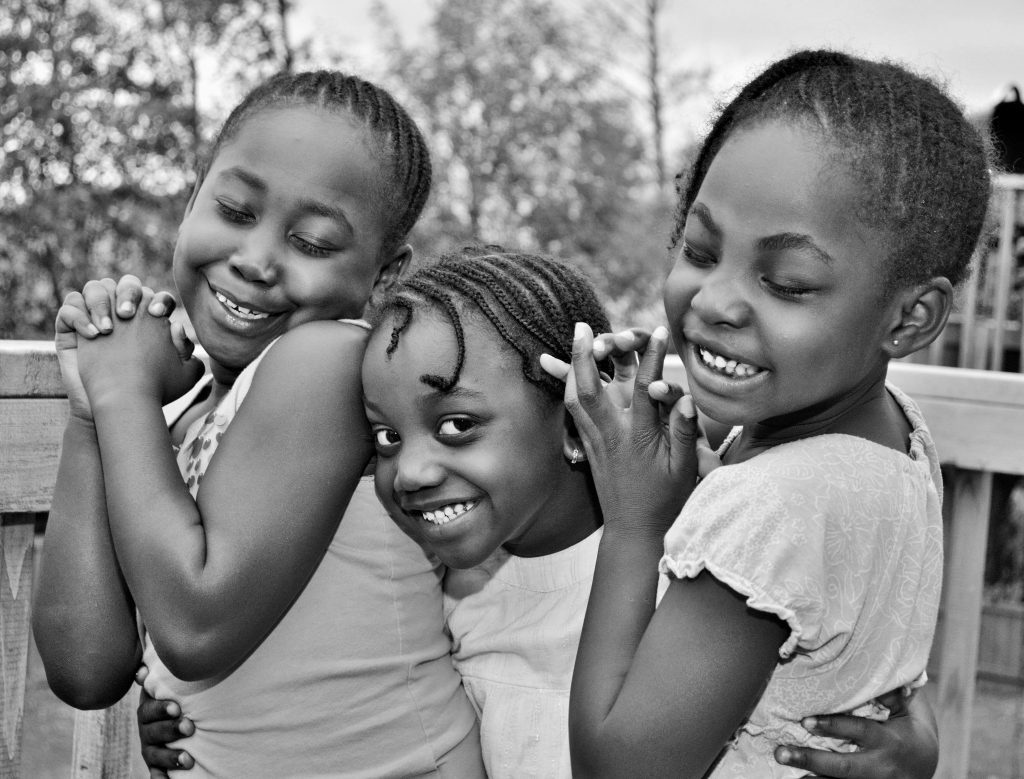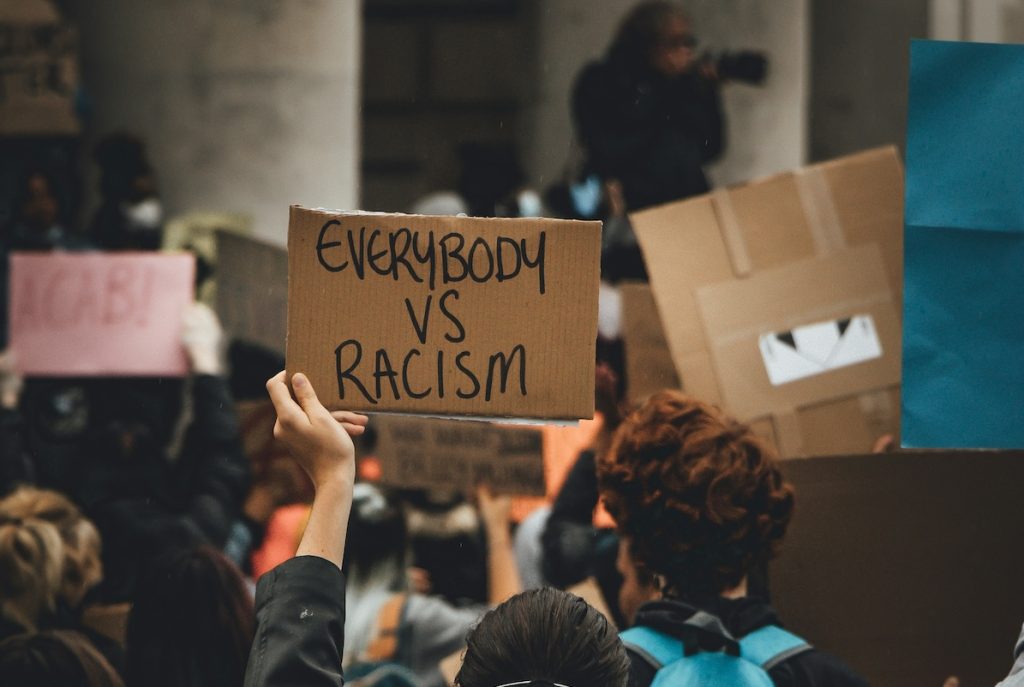[ad_1]

Despair is a number one explanation for incapacity and poor well being worldwide and is anticipated to rank first by 2030 (Psychological Well being Statistics, n.d.).
The notion of intergenerational trauma in relation to the event of despair and different psychological sicknesses has been recognised for a while. Intergenerational trauma will be thought of to incorporate any publicity to extraordinarily opposed occasions that impacts a person a lot that their kids discover themselves wrestling with their mother and father’ put up‐traumatic state. Chan et al. (2018) reported on the rising proof supporting the concept that kids are affected by parental publicity to traumas occurring earlier than their start, and probably even previous to their conception.
Racism could play one such half within the transmission of intergenerational trauma. Describing the nuances of racism is past the scope of this weblog, however one definition classifies it as organised methods inside societies that create unfair inequalities in energy, sources, capacities, and alternatives throughout racial or ethnic teams (Paradies et al., 2015).
Murry et al.’s (2018) integrative mannequin of stress is one option to bridge the hole between the transmission of trauma and racism. This mannequin argues that racism can cascade by way of intergenerational experiences in lots of types of discrimination and oppression, which might impression the parent-child relationship and attachment. That is thus not directly affecting the kid’s psychological well being and resulting in ongoing emotional difficulties. This has obtained some help within the literature (e.g., Mekawi et al., 2021; Roubinov et al., 2022).
Regardless of theories explaining how intergenerational trauma manifests, thus far there was much less work exploring and unpicking the main points within the usually disproportionately harmed Black mother-child dyad. We already know outcomes are usually worse for this group, so do maternal experiences of racism not directly drive the event of despair of their kids by way of an preliminary impression on maternal despair? And if that is so, do larger levels of maternal trauma impression this? This weblog outlines the work of Mekawi et al. (2023) that explored simply this subject.

Racism and trauma cascaded by way of intergenerational experiences can profoundly impression the parent-child relationship.
Strategies
A cross-sectional quantitative examine recruited 148 ladies (Black or African American moms with low socioeconomic sources, aged 20 to 59 years) and their kids (aged 7 to 13) from numerous major care and bodily well being clinics in a big city metropolis within the south-eastern US. This ‘center childhood’ section was chosen because it’s a time when kids are extra uncovered to overt media racism, one thing related to larger charges of despair.
A number of self-report measures have been used to gather information, together with:
- Experiences of Discrimination (EoD) measured discrimination throughout 9 conditions.
- Beck Despair Stock-II (BDI-II) assessed maternal depressive signs.
- Behavioural Evaluation System for Kids (BASC-2) evaluated baby depressive signs.
- Traumatic Occasions Stock (TEI) assessed the kid’s experiences of potential traumatic incidents.
Outcomes
Charges of discrimination and trauma have been excessive within the examine pattern: as examples, solely a couple of third (37%) mentioned they’d by no means skilled racial discrimination, and, shockingly, solely 8% mentioned they’d by no means suffered any of the traumas listed. Sadly, virtually 44% reported having been attacked by a partner or romantic accomplice, and slightly below 1 / 4 (24%) had such an assault the place a gun, knife or weapon was concerned.
Outcomes confirmed that maternal experiences of racism and trauma have been related to extra extreme maternal despair (racism: r = 0.37, p < .01; trauma: r = 0.49, p < .01), and extra extreme baby despair (racism: r = 0.19, p = .02; trauma: r = 0.34, p < .01). Maternal experiences of racism have been not directly related to baby despair, and this was mediated by way of the impact of maternal despair (ab =0.76, 95% CI [0.261 to 1.367]).
Notably, publicity to trauma confirmed a stronger affiliation with maternal and baby despair than experiences of racism.
Importantly, there was a compounding impact: when there have been comparatively decrease ranges of maternal trauma publicity, the oblique impact of maternal experiences of racism on baby despair turned non-significant. Nevertheless, when there have been comparatively larger ranges of maternal trauma publicity, the oblique impact of maternal experiences of racism on baby despair have been statistically vital.

This examine means that maternal experiences of racism and trauma are related to extra extreme maternal and baby despair. The connection with trauma was stronger than the connection with racism.
Conclusions
Findings from the present examine help that there’s a hyperlink between maternal experiences of racism, maternal despair, and baby despair in Black mother-child dyads. Additional, the diploma of maternal trauma publicity was proven to affect the oblique results of maternal experiences of racism on baby despair.
General, the present examine helps to clarify the intergenerational results of racism and trauma on psychological well being, which might exacerbate racism’s penalties throughout generations.

The diploma of maternal trauma is a key mediator of the impression on kids, with decrease ranges of maternal trauma making the oblique impact of maternal experiences of racism on baby despair non-significant.
Strengths and limitations
The examine provides deeper insights into the advanced connection between racism, trauma, and psychological well being in Black moms and youngsters. One can solely say that extra analysis of this nature has been wanted, and the present examine is a really constructive contribution to the literature.
The examine’s cross-sectional nature limits our capability to attract particular conclusions in regards to the relationships discovered or to discover adjustments over time, and ascribe any causality to the findings. A longitudinal examine may have offered a extra nuanced understanding of intergenerational transmission of traumatic stress, contemplating components like racial id and racial socialisation.
The examine solely relied on parent-reported scores for assessing the kid’s experiences of racism, doubtlessly limiting the evaluation’s comprehensiveness and accuracy. The exclusion of the kid’s perspective raises the query in regards to the affect of the mom’s depressive signs on their evaluation of their baby’s behaviours. Analysis has proven that parental psychological well being can impression how mother and father understand and report their baby’s behaviours (Najman et al., 2001). Holding this in thoughts, lacking this info doubtlessly affected the examine’s capability to seize the kid’s subjective expertise independently.
Individuals have been approached in ready rooms, and one can argue in regards to the representativeness of the participant inhabitants that could not absolutely replicate the variety inside the wider neighborhood. Exclusion of members because of lacking information could hinder some deciphering and generalising the findings, making it difficult to increase the outcomes to Black People in different settings and areas. The applicability to non-US populations is unsure, given the culturally distinctive facets that may happen in every nation, while accepting the unhappy reality of the universality and ubiquitousness of racism.

Mekawi et al. (2023) supply deeper insights into the advanced connection between racism, trauma, and psychological well being, with some limitations from the representativeness of the participant inhabitants.
Implications for observe
As two psychological professionals working inside a Baby and Adolescent Psychological Well being Companies (CAMHS) setting, for us, the implications of this examine are wide-ranging.
Regardless of systemic inequalities and challenges to accessing healthcare, the findings from the present examine reinforce the significance of a holistic method to evaluation and formulation. That is particularly very important when working with households and younger individuals who have skilled racism and trauma. The interconnected nature of psychological well being, parental trauma publicity and baby despair instructed on this examine highlights the necessity to undertake a systemic method in addition to evidence-based and culturally delicate trauma-informed care. Despair inside a household is just not remoted however as an alternative influenced by household dynamics. A systemic lens can permit for professionals working with households to recognise interrelated patterns, dynamics, and coping mechanisms inside households, shedding gentle on broader contextual components shaping a household’s experiences.
The authors recommend that screening for such difficulties is important. Nevertheless, this opens up the query of how simple individuals would possibly discover it to speak about such a difficult matter, particularly if the clinician – already able of an influence – is of a unique ethnicity or gender. Within the paper, the authors deal with this, noting “race based mostly distrust of the well being care system”, the necessity to educate healthcare professionals, and the necessity for culturally delicate frameworks for evaluation and therapy. They provide the EMBRace programme (‘participating, managing, and bonding by way of race’) as one doable answer.
The examine talked a couple of nuanced pathway linking maternal experiences of racism to baby despair by way of maternal despair. This exhibits that racism not solely straight impacts moms but in addition impedes their capability to thrive and really feel safe, doubtlessly contributing to the next threat of despair in each moms and youngsters. The moderating results of excessive maternal publicity to trauma provides complexity, indicating that trauma could intensify the interaction between racism, maternal despair, and opposed baby outcomes. This led us to replicate on the stigma of psychological sickness, and how race or ethnicity could not solely be excluded from neighborhood conversations but in addition from discussions with kids.
General, the examine’s findings emphasise the necessity for complete, culturally delicate, and trauma-informed interventions. The examine prompts additional reflection on systemic challenges impacting service supply and advocates for an integrative, multi-level technique in addressing psychological well being disparities.

There’s a want for extra complete, culturally delicate, and trauma-informed assessments and interventions all through medical observe.
Assertion of pursuits
None.
Hyperlinks
Major paper
Mekawi Y, Ishiekwene MN, Jimenez AN, Ware M, Carter SE, Stenson AF, Jovanovic T, Bradley-Davino B, Powers A. (2023). Intergenerational Transmission of Despair: Analyzing the Roles of Racism and Trauma Amongst Black Moms and Youth. Journal of the American Academy of Baby & Adolescent Psychiatry. https://doi.org/10.1016/j.jaac.2023.04.016
Different references
Chan, J., Nugent, B. M., & Bale, T. L. (2018). Parental Advisory: Maternal and paternal stress can impression offspring neurodevelopment. Organic Psychiatry, 83(10), 886–894.
Mekawi, Y., Carter, S., Brown, B., Martinez de Andino, A., Fani, N., Michopoulos, V., & Powers, A. (2021). Interpersonal Trauma and Posttraumatic Stress Dysfunction amongst Black Girls: Does Racial Discrimination Matter? Journal of Trauma & Dissociation, 22(2), 154–169.
Psychological Well being Statistics. (n.d.). Www.mentalhealth.org.uk. Retrieved January 31, 2024, from https://www.mentalhealth.org.uk/explore-mental-health/statistics?gad_source=1&gclid=EAIaIQobChMIyIrewMmIhAMV5pFQBh0AqQiyEAAYAiAAEgJ6UvD_BwE
Murry, V. M., Butler-Barnes, S. T., Mayo-Gamble, T. L., & Inniss-Thompson, M. N. (2018). Excavating New Constructs for Household Stress Theories within the Context of On a regular basis Life Experiences of Black American Households. Journal of Household Idea & Evaluation, 10(2), 384–405.
Najman, J. M., Williams, G. M., Nikles, J., Spence, S., Bor, W., O’Callaghan, M., Le Brocque, R., Andersen, M. J., & Shuttlewood, G. J. (2001). Bias influencing maternal studies of kid behaviour and emotional state. Social Psychiatry and Psychiatric Epidemiology, 36(4), 186–194.
Paradies, Y., Priest, N., Ben, J., Truong, M., Gupta, A., Pieterse, A., Kelaher, M., & Gee, G. (2013). Racism as a determinant of well being: a protocol for conducting a scientific evaluation and meta-analysis. Systematic Critiques, 2(1).
Roubinov, D., Browne, D., LeWinn, Ok. Z., Lisha, N., Mason, W. A., & Bush, N. R. (2022). Intergenerational transmission of maternal childhood adversity and despair on kids’s internalizing issues. Journal of Affective Problems, 308, 205–212.
Picture credit
[ad_2]


